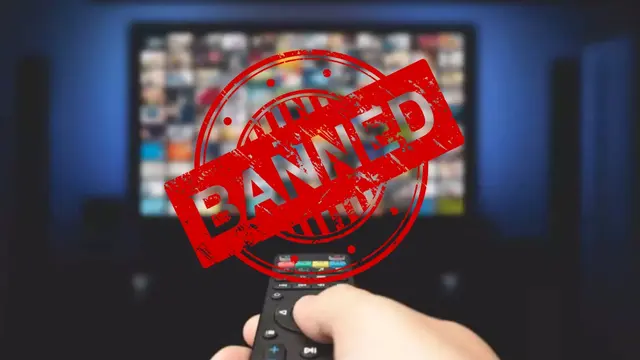In a sweeping crackdown to safeguard cultural values and online decency, the Ministry of Information & Broadcasting has directed the blocking of at least 25 OTT platforms and associated websites and apps for streaming obscene, vulgar, and in many cases, pornographic content. The action came after months of advisories, warnings, and mounting public complaints, including from the National Commission for Protection of Child Rights (NCPCR) and civil groups like Save Culture Save Bharat Foundation.
What Happened?
These platforms — including Ullu, ALTT, Mojflix, NeonX VIP, Desiflix, and HotX VIP — were allegedly showcasing content with sexual innuendos, nudity, and long scenes of sexually explicit acts, often without any story or social message. An official noted:
“There was hardly any storyline… A large portion of the content was obscene and vulgar.”
🚫 What Got Banned?
-
26 websites
-
14 mobile apps (9 on Google Play Store, 5 on Apple App Store)
-
Social media pages associated with these apps have also been taken down.
Notable apps banned include Big Shots, Boomex, Navarasa Lite, and Adda TV.
These platforms had been under scrutiny since 2024. Despite repeated government advisories, some removed content temporarily but later re-uploaded it.
Example: ALTT’s show “House Arrest” was taken down once, but similar content continued to stream.
Legal Framework Behind the Action
The crackdown is backed by four major Indian laws:
-
IT Act, 2000 – Section 67: Publishing or transmitting obscene material online is a punishable offense.
-
IT Act, 2000 – Section 67A: Uploading sexual content or activities is illegal.
-
Bharatiya Nyaya Sanhita (BNS) 2023 – Section 294: Obscene acts or words in public are punishable.
-
Indecent Representation of Women (Prohibition) Act, 1986 – Section 4: Depicting women in a vulgar or demeaning manner is a legal offense.
📊 What Do the Numbers Say?
-
In 2020, MX Player recorded over 11 million views in a single day for an adult comedy show.
-
ALTT’s viewership grew 60% in 2020 compared to 2019.
-
Monthly active users increased by 21% that year.
This indicates a sizable consumer base for adult content.
📄 Government Guidelines
The Information Technology (Intermediary Guidelines and Digital Media Ethics Code) Rules were introduced in 2021 and updated in 2023.
Key provisions include:
-
Mandatory content classification based on audience age groups
-
Grievance officers must be appointed by platforms
-
Content must avoid sexuality, anti-national themes, and harm to children or women
Page 28 of the 30-page guideline outlines general rules for films, web series, and entertainment content.
Who Took Action?
-
Ministry of Information & Broadcasting
-
Ministry of Home Affairs
-
Ministry of Women & Child Development
-
Ministry of Electronics & IT
-
Department of Legal Affairs
-
Industry bodies like FICCI and CII
In 2021, businessman Raj Kundra, husband of actress Shilpa Shetty, was arrested for allegedly operating a porn racket via an OTT app called HotShots. This was the first high-profile case to expose how OTT platforms were being misused for pornography.
Also, social media accounts linked to these platforms have been deactivated or flagged for violation.
“Such content represents blatant unlawful acts threatening to tear apart India’s character and cultural heritage,” said Uday Mahurkar, founder of Save Culture Save Bharat Foundation.
The Digital Publisher Content Grievances Council (DPCGC) had earlier flagged over 100+ objectionable shows on Ullu and ALTT, stating:
“Sex and nudity was shown without any contextual justification… just to augment viewership.”
What’s the Larger Goal?
While some may argue for creative freedom, the government seems firm:
✅ OTT platforms must follow the Code of Ethics as per the IT Rules, 2021
✅ Content must respect India’s social values and cultural fabric
✅ Women’s dignity, child protection, and decency online are non-negotiable
This bold action sends a clear signal — self-regulation isn’t optional anymore.
Platforms that chase viewership at the cost of decency will face legal consequences.
While mainstream platforms like Netflix were not blocked, they too have come under public scrutiny.








